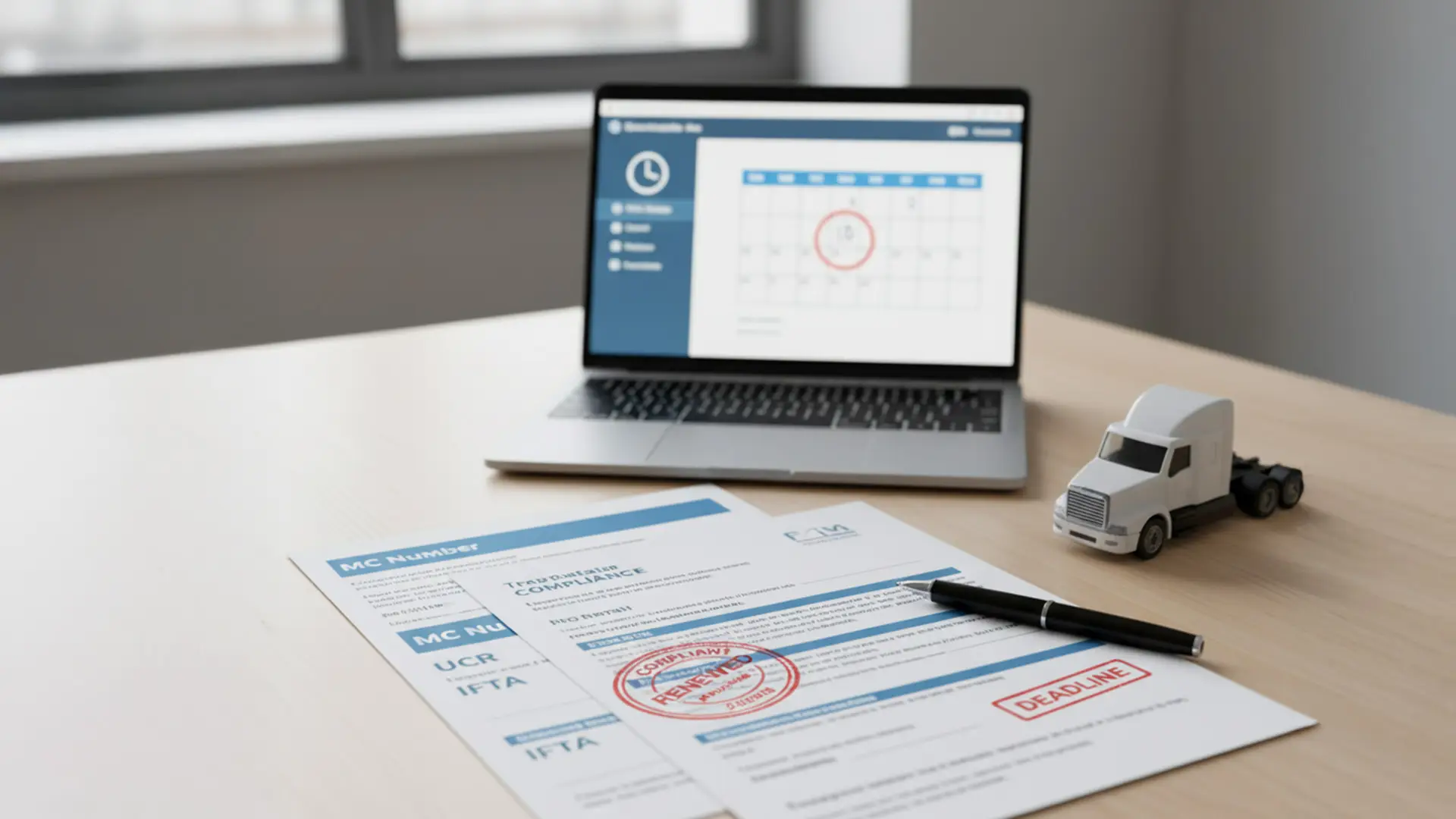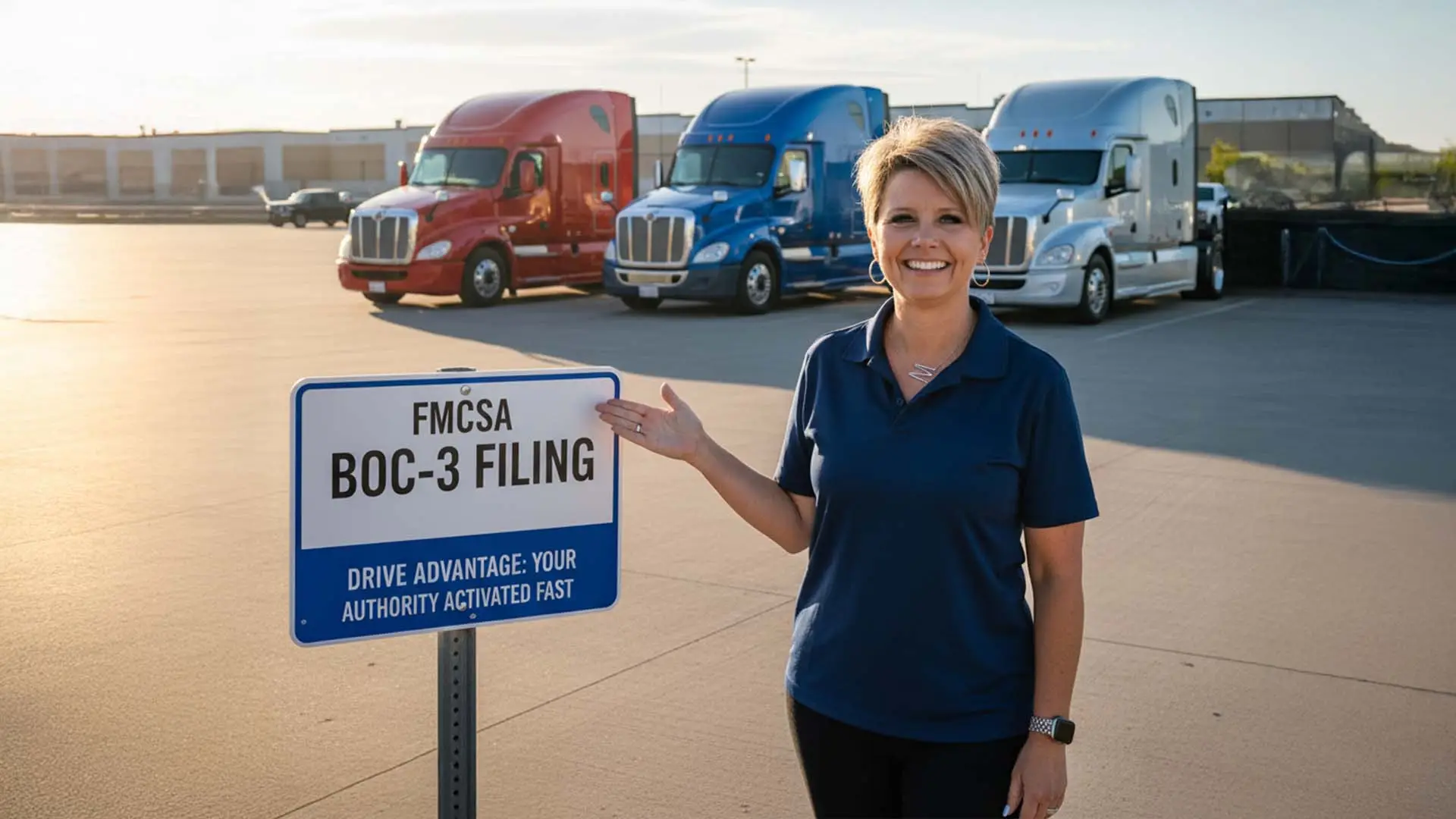In the fast-paced world of transportation, maintaining FMCSA safety compliance with federal, state, and local regulations is essential for ensuring the safety and efficiency of operations including timely updates to your FMCSA MCS-150 filing requirements and other regulatory credentials. From the Federal Motor Carrier Safety Administration (FMCSA) to state-specific requirements like Idaho commercial vehicle registration and IRP registration service renewals, understanding the importance of renewing these credentials is vital for any transportation business.
Here’s an in-depth look at the process and significance of renewing annual compliance credentials in transportation.
1. Understanding Compliance Credentials Compliance credentials are permits and licenses that transportation companies must obtain to operate legally. These credentials vary depending on the type of transportation services provided, the size of the fleet, and the commodities transported. Common credentials include:
- Operating Authority (MC Number): Required for carriers transporting regulated commodities across state lines.
- Unified Carrier Registration (UCR): A program that requires commercial motor carriers to register and pay a fee based on the size of their fleet.
- International Registration Plan (IRP): Facilitates the registration and payment of fees for vehicles operating in multiple jurisdictions.
- International Fuel Tax Agreement (IFTA): A system for reporting fuel use tax for vehicles that travel in more than one jurisdiction.
2. Importance of Renewal Renewing annual compliance credentials is not just a bureaucratic necessity; it plays a critical role in the transportation industry. Here are several key reasons why timely renewal is essential:
- Legal Compliance: Operating without valid credentials can result in hefty fines, penalties, and even suspension of operations. Regular renewal ensures that your business complies with all legal requirements.
- Safety Assurance: Many compliance credentials are designed to enhance safety standards within the industry. By renewing these credentials, transportation companies contribute to safer roadways and operations, thereby protecting their drivers, cargo, and the public.
- Maintaining Reputation: A company’s reputation is built on its reliability and adherence to regulations. Non-compliance can damage a company’s credibility, leading to lost business opportunities and damaged relationships with clients and partners.
- Financial Implications: Late renewals or lapses in compliance can lead to increased insurance premiums or difficulty obtaining insurance altogether. Being compliant helps manage operational costs effectively.
3. The Renewal Process Renewing compliance credentials can vary by jurisdiction and type of credential, but there are several common steps that transportation companies should follow:
- Review Expiration Dates: Keep track of all credential expiration dates to ensure timely renewals. Utilizing compliance management software can help automate reminders and deadlines.
- Gather Required Documentation: Each credential may require specific documentation for renewal. Ensure that all necessary documents, such as proof of insurance, vehicle registrations, and safety records, are up-to-date and organized.
- Complete Renewal Applications: Fill out the required renewal applications accurately. Mistakes or omissions can lead to delays or denials.
- Pay Renewal Fees: Be prepared to pay any associated renewal fees. These fees can vary widely depending on the type of credential and the size of the operation.
- Submit Applications: Submit renewal applications and payments through the appropriate channels, whether online or via mail. Confirm that applications have been received and are being processed.
- Follow Up: After submission, follow up with the relevant authority to ensure that the renewal is progressing. Keep copies of all submitted documents and confirmations.
4. Staying Informed The transportation industry is subject to frequent changes in regulations and compliance requirements. It’s essential for companies to stay informed about any updates that may affect their credentials. Here are some tips for staying updated:
- Join Industry Associations: Organizations like the American Trucking Association (ATA) provide valuable resources and updates on compliance matters.
- Attend Workshops and Webinars: Many regulatory bodies and industry organizations offer training sessions that cover compliance updates and best practices.
- Consult Compliance Experts: Consider hiring compliance consultants who can provide guidance and ensure that all necessary credentials are maintained.
Conclusion Renewing annual compliance credentials is a critical responsibility for transportation companies that should never be overlooked. By understanding the importance of timely renewals and following a systematic process, businesses can ensure they remain compliant, safe, and reputable in the industry. As regulations continue to evolve, staying proactive about compliance not only protects the business but also contributes to the overall safety and efficiency of the transportation sector improving your Safety Measurement System (SMS) scores and long-term reliability.



